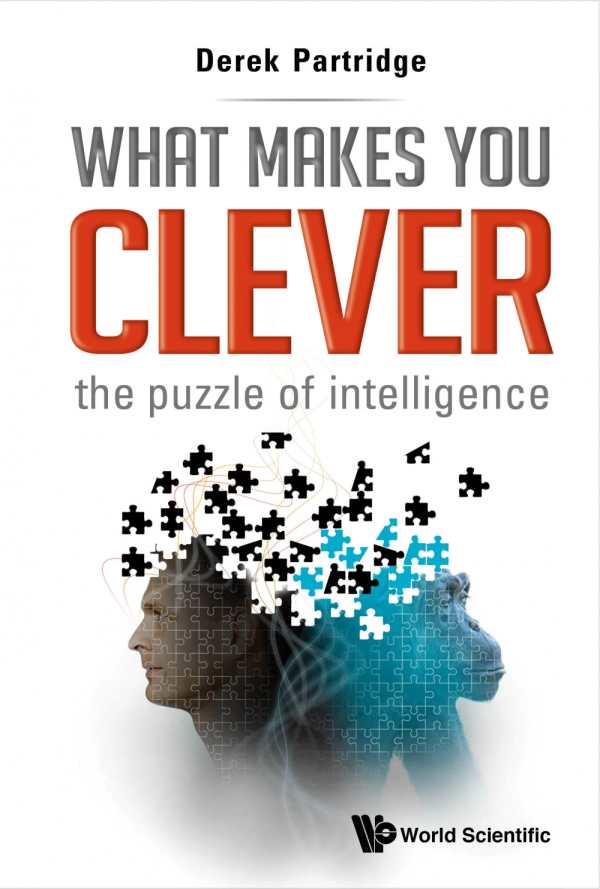What Makes You Clever
The Puzzle of Intelligence
This celebration of the complexity and mystery of the human mind respects readers’ intelligence while it examines that mystery.
For all of today’s innovations and discoveries across scientific disciplines, the whats, whys, and hows of human intelligence remain largely enigmatic. In What Makes You Clever: The Puzzle of Intelligence, Derek Partridge explores why human intelligence is so difficult for science to grasp.
Partridge uses ten maxims, woven throughout the book, to call out the themes that unify this multidimensional topic—and make the book easier to digest. The maxims cover “the technical difficulties of the subject of intelligence, to some unhelpful psychological predispositions stemming from the oddities of formal logic, and the practicalities of computer model building.”
Each chapter explores what ideas like scientific process, data collection, language, AI, and more have to say about intelligence—not to mention the conundrum of using a human mind to study the human mind. These topics are perplexing, but the book is not a frustrating dead end; the author appears to find joy in the challenge and be invigorated by the impossibility of the question. The author’s computer science background shines through in his knowledge of the intricacies and limitations of artificial intelligence.
On the denser end of the popular-science genre, this book is ideal for the intellectually nimble who are not intimidated by scientific vocabulary. Partridge’s respect for his audience sets this book apart. He engages readers as experts—who knows the ins and outs of human intelligence better than humans? While Partridge shares a wealth of research information, he simply presents it then observes it alongside his reader. This peer-focused mutuality makes it feel like you’re sitting next to the author, assembling the puzzle, piece by piece, together.
The book is filled with insightful diagrams (though some are a bit too small to see well), and each chapter has generous endnotes that will satisfy and enlighten inquisitive people and academics alike. The cover image is apt and enticing, highlighting one of the key questions of the book: If humans are so similar to chimpanzees, then how are we so different?
This clever book spurs both awe and understanding of the complexities of human intelligence.
Reviewed by
Melissa Wuske
Disclosure: This article is not an endorsement, but a review. The publisher of this book provided free copies of the book to have their book reviewed by a professional reviewer. No fee was paid by the publisher for this review. Foreword Reviews only recommends books that we love. Foreword Magazine, Inc. is disclosing this in accordance with the Federal Trade Commission’s 16 CFR, Part 255.

